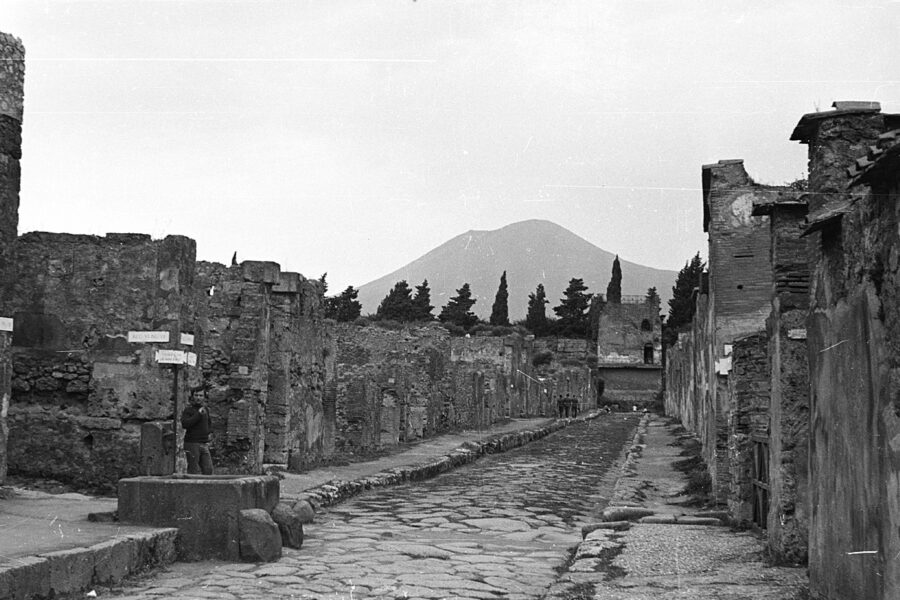
Have you ever wondered how ancient societies understood the world around them, especially the worst parts? Today we can predict, prevent, and process disasters through scientific technology. Past peoples did not have such luxury, but they still had to make sense of disasters, natural and manmade.
CLAS-B 312 serves as an introduction to disasters in ancient Greece and Rome. The goal of the course is to provide an easily accessible gateway to the Classical World, by way of an interesting and important area of research. By studying representative works of art, artifacts, and literature, you will explore topics including:
- how ancients viewed the afterlife
- the importance of burial
- plagues in Athens and Rome
- the Late Bronze Age collapse
- the volcanic destruction of Pompeii
- how modern people interact with ancient disaster sites
Most importantly, you will also learn to think critically about important questions: How did ancient Mediterranean societies conceptualize disasters and death? How did such conceptions evolve and function within the specific context of the ancient Mediterranean world? What social roles did these concepts play? How did societies shape ideas of disasters and death, and how did disasters and death shape societies? How are disasters and death reflected in the literature and art of both ancient societies and our modern culture?
Want to explore how this course connects with the modern world? Check out our blog posts inspired by this course.
Fun Facts:
- 5 week, 1 credit “appetizer” class
- offered online asynchronous
- can be combined with other 1 credit “appetizer” classes
- no pre-reqs
- can be applied to the Classical Studies Minor
Coming Next: Fall 2024 (27103)
- 1st 5 week session (8/26/2024–9/27/2024)
- online asynchronous
- Dr. Elizabeth Thill
Recent Offerings
Spring 2024 (1st 5 wk)
- online asynchronous (Dr. Elizabeth Thill)
Fall 2023 (1st 5 wk)
- online asynchronous (Dr. Elizabeth Thill)
SPRING 2023 (1ST 5 WK)
- online asynchronous (Dr. Elizabeth Thill)


